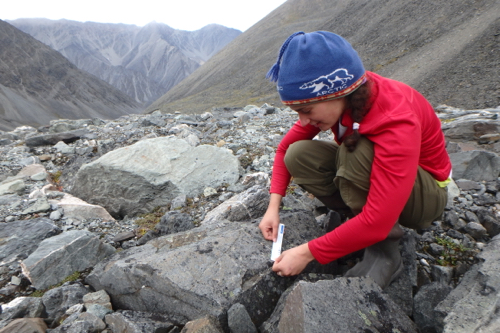
Ellie Broadman is a second year PhD student in the School of Earth Sciences and Environmental Sustainability. As my PolarTREC researcher, she is the reason I was able to have this amazing experience. Most PolarTREC participants, both teachers and researchers, are later in their careers, so for me, an early career teacher, working with a graduate student was ideal. Her enthusiasm for and confidence in her scientific disciplines, and diligence towards details in the field, makes working with her inspiring. I appreciate her fresh perspectives and admire her dedication. I look forward to continued collaboration and friendship with Ellie as we both grow in our respective careers.
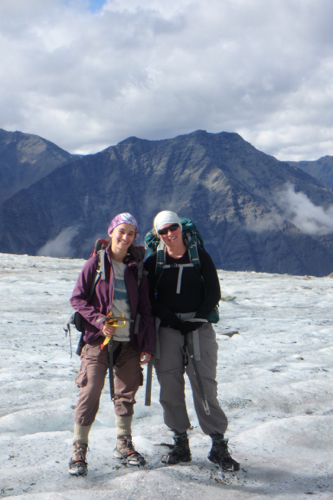
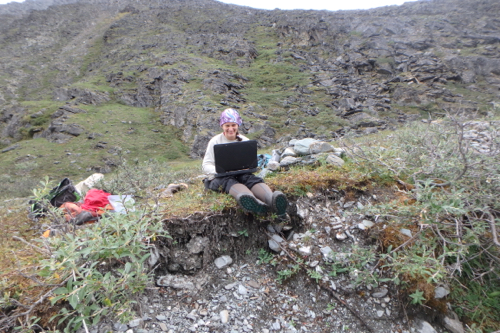
- What are your broad scientific interests?
ClimateThe average weather over a particular region of the Earth. Climate originates in recurring weather phenomenon that result from specific types of atmospheric circulation., because it is so complex scientifically. It is so intersectional – many different types of scientists are involved, and there is so much at play: physics, hydrology, etc. ClimateThe average weather over a particular region of the Earth. Climate originates in recurring weather phenomenon that result from specific types of atmospheric circulation. is further complicated because of societal impacts. It is directly related to people, so is important to understand.
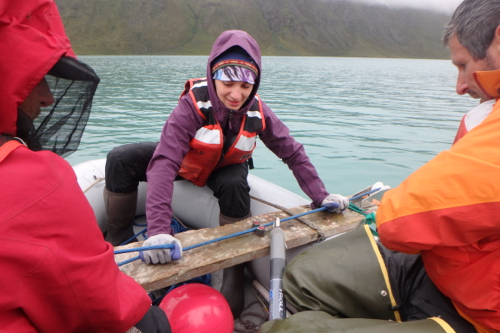
Why did you become a scientist?
I almost didn't. It was very interest driven for me – I never had the image of myself as a scientist. It's easy to put scientists on a pedestal, and I did not see myself in that way. In college I studied geography, and started taking more science classes. I liked those classes, and being outside, and understanding the outdoors better, so I did an Honor's thesis, then just kept going to an REU (research experience for undergraduates), Master's program, and now a PhD.What do you like most about your job?
It is definitely not boring. There are lots of component: field, lab, writing, reading, research. I like them all. It's very creative, engaging, and interesting, and I enjoy making a living by thinking.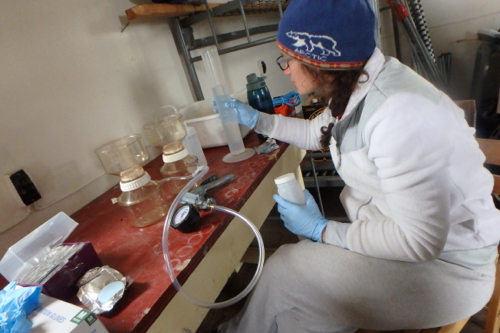
Ellie filters sediment in the field laboratory at Lake Peters. What do you like least about your job
Cut-throat competition. It's hard to compete with the people you work with. Everyone is trying to do their best, most important work, but funding is very limited so everyone is competing for funding. It can be really hard.What was your favorite day of fieldwork?
GlacierA mass of ice that persists for many years and notably deforms and flows under the influence of gravity. day and moraine day. The glacier itself is amazing – one of the most otherworldly places I've ever been. Moraine day was great because it was the second time we'd done that hard hike and I already felt stronger. It's sad to break down a project, like we did on those days, but it's important to understand the logistics and all steps of a process.
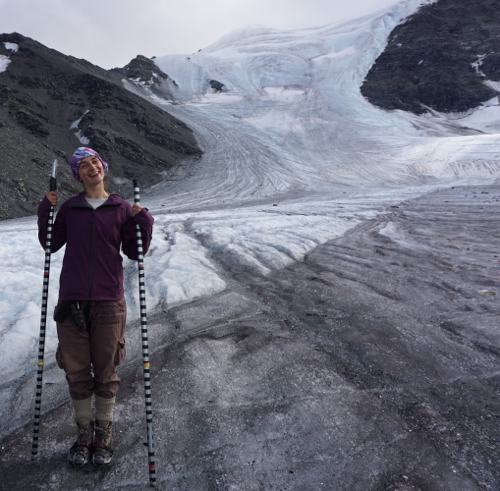
- Is there anything else that I didn't ask that you'd like to tell my readers and students?
Don't be fooled by a perceived image of science – anyone can be a scientist. Scientists communicate in another language, and it is important to me, as a young scientist, to develop my ability to communicate science to everyone.
Ellie holds a Van Dorn, used for sampling deep water.
This is the third of three team profiles, created from interviews after our field experience. Answers are in the scientists' words when possible, but I did edit for readability and length where necessary.


Comments